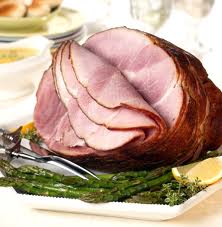Hächler et al. report in the current issue of Eurosurveillance that from 24 April to 31 July 2011, nine cases of listeriosis were registered in the cantons of Aargau, Basel-Land and Zurich, Switzerland. In six of the cases, infection with Listeria monocytogenes was laboratory confirmed,  while three remained suspected cases. The suspected cases were family members of confirmed cases with identical or similar symptoms. All confirmed cases were infected with a L. monocytogenes strain belonging to serovar 1/2a: all had an indistinguishable pulsotype by pulsed-field gel electrophoresis (PFGE). The same strain was detected in samples of cooked ham that were on sale from a particular retailer. Two samples of ham tested contained 470 and 4,800 colony-forming units (CFU) L. monocytogenes per gram respectively. Data of shopper cards from two confirmed cases could be evaluated: both cases had purchased the contaminated ham. The outbreak initiated a product recall and alert actions at national and European level, through the Rapid Alert System for Food and Feed (RASFF). Following the RASFF alert, the company producing the contaminated ham was inspected by the responsible authorities. Their investigations showed that the ham was not contaminated in the production plant, but in the premises of a company to which slicing and packing was outsourced.
while three remained suspected cases. The suspected cases were family members of confirmed cases with identical or similar symptoms. All confirmed cases were infected with a L. monocytogenes strain belonging to serovar 1/2a: all had an indistinguishable pulsotype by pulsed-field gel electrophoresis (PFGE). The same strain was detected in samples of cooked ham that were on sale from a particular retailer. Two samples of ham tested contained 470 and 4,800 colony-forming units (CFU) L. monocytogenes per gram respectively. Data of shopper cards from two confirmed cases could be evaluated: both cases had purchased the contaminated ham. The outbreak initiated a product recall and alert actions at national and European level, through the Rapid Alert System for Food and Feed (RASFF). Following the RASFF alert, the company producing the contaminated ham was inspected by the responsible authorities. Their investigations showed that the ham was not contaminated in the production plant, but in the premises of a company to which slicing and packing was outsourced.
The complete report is available at http://www.eurosurveillance.org/ViewArticle.aspx?ArticleId=20469.
